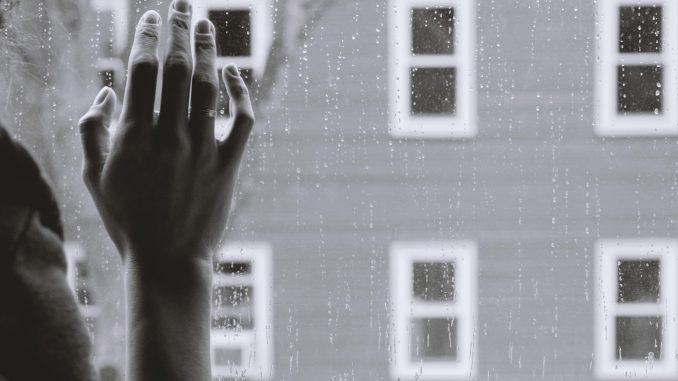
Let me start this article with an assurance that I am okay. I am surviving, and have accessed resources to keep myself well until this passes over.
If my mental disabilities were put into University honorifics, it would run something like this: I graduated from the esteemed School of Non-Sanity with a B.Sc. in Depression, B.A. of CPTSD and a minor in OCD, carrying on to earn my M.A. in ADHD. I have worn all these titles with pride, as they signal to me what little letters near a name signal to anyone: that I endured and triumphed.
Unfortunately, mental illness is an ongoing degree that requires monthly, weekly, and sometimes daily qualification. It requires support to maintain the high level of training needed to survive these horrific honorifics. Counselors, drop-in daily peer groups; medicine; exercise regimens, and full on courses that resemble those of a University.
Before Coronavirus, I was attending two lectures a week at the Peterborough Regional Health Centre (PRHC): the Anxiety Management course which features an hour-and-a-half lecture with weekly homework, as well as a CBT Depression course which runs weekly two-and-a-half-hour lectures for 12 weeks, and has more handouts than all of my first-year courses combined. Both require daily homework. One features online lectures, while the other comes with a full-size textbook to work through and with. You need to plan allocated time for practice, and personal tenacity in the face of inner adversity. You’re warned upon entering that these courses will be as effective as you make them, and that for the most part, you’re encouraged to take them once. If you want to graduate from the School of Non-Sanity to pursue a career, homework is everything.
But it’s also made clear that these skills, when not properly maintained, rust. And when learning the skills for the first time, they can simply dissolve before coming to manifestation. It’s like when you go on summer vacation, and proceed to forget the entire year of schooling you just attended. This brings me to my first huge issue as a person fighting for their mental health: they didn’t give me the option to finish.
I waited almost six months for the Anxiety Management course. I waited over seven months for Cognitive Behavioural Training for Depression. Now the skills I was just starting to learn have begun to rust and dissolve in my hands.
Mental health often comes down to making routines. There is so much going on in my head at any given moment; I need everything I do to be rather regimented so I can concentrate on doing the thing I’m doing so that I can exist in the present moment without snapping like a dead branch. These routines become your salvation, in a way. Pillars you stand upon. With COVID-19, all of them were swept out from under my feet at once.
No more PRHC classes or even drop-in groups. No more University classes or seminars. No more Open-Mic nights downtown. No more community events. I can’t even get together with my friends due to a compromised immune system in that group. Everything was swept out from under my feet within days of each other. The government’s advice? Stay home. If I weren’t still writing, I’m not sure how I’d be managing.
Quickly, old coping devices started creeping back in. After 125 days of not drinking a drop of alcohol, I was drinking again. After having gone a month cold turkey from smoking, I was smoking again. I was blessed in the form of my counselor, a private practitioner who hasn’t shut down. I was starting to spiral out hard. I was ashamed I’d fallen back, and it was starting to eat me up. Speaking with her, I was reminded of something important.
These were old coping devices. And when all of the new, healthy coping devices were swept away or out of reach, I found myself with the old ones. So long as coping devices didn’t become a habit; didn’t mutate out of control to addiction once again, it was going to be okay. It wasn’t something to be ashamed of. It was something to learn from. In fact, it was a very powerful lesson I could leverage for the benefit of my mental health.
When we leave our old coping mechanisms behind, be it smoking, drinking, or something less obvious, we inevitably replace them with new ones. The old city becomes the catacombs of the new city. When that new city gets wiped out by a natural disaster, the catacombs remain. Of course you’ll take shelter in them. The issue truly comes when you don’t start building again after the disaster has passed.
That’s where I’m at right now. Taking shelter. While I’m down here though, I’ve brought some of the new skills with me, and decided to clean up the place a bit. Catacombs can become subway transit. Catacombs can be sewers, and storm shelters. Catacombs can be infrastructure. You just don’t want to live in them full-time, that’s all.
I’ll see you all again once this blows over, back on the surface. Can’t wait to see what we build.
